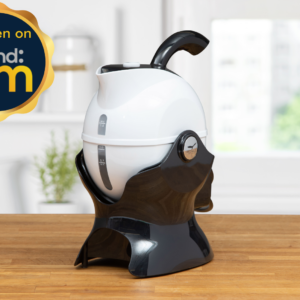World Parkinson’s Day is on April 11th every year. It is a day dedicated to building awareness and understanding about the disease. We wanted to help do our part in sharing more about it, it’s known causes, symptoms and the possible treatment options available today.
At present in Ireland, around 12,000 people are living with Parkinson’s, affecting 1% of the population over 60.
What is Parkinson’s Disease?
In short, Parkinson’s is a brain disorder that can lead to:
- Stiffness in your limbs
- Shaking
- Having coordination issues with walking and balancing
Parkinson’s can affect both men and women. However, men are statistically more likely to develop it. The main known cause is the loss of nerve cells in a part of the brain known as ”substania nigra”. It is these nerves that are responsible for producing a chemical called dopamine which is also known as the ”feel good’‘ hormone.
This chemical acts as the messenger between the brain and bodies nervous system. This then helps control and co-ordinate the bodies movements.
If your nerve cells are damaged or die – the amount fo dopamine in the brain is reduced and your messenger won’t be able to work as well as it should. This then means that your bodies movements will become slower.
Sadly, there are no n=known cure for the disease but there are treatment options available and aids to help make life safer and easier at home.
What Can Cause Parkinson’s?
Symptom’s of Parkinson’s disease generally develop when near 80% of the nerve cells have been lost but what causes the nerve cell loss?
It is currently believed that a combination of genetic changes and environmental factors may be responsible for the loss of nerve cells.
Genetics:
Parkinson’s can run in families, but it is very rare for it to be inherited this way. There are a number of genetic factors that have been shown to increase the risk of developing Parkinson’s that is why it’s important to talk to you doctor if you are worried or have any questions.
The Environment:
There are some that believe that there are environmental factors that increase your risk of developing Parkinson’s disease. There is currently research on whether pesticides and herbicides that are used in farming etc. can contribute to the condition but this is not confirmed just yet.
What Are the Symptoms of Parkinson’s?
Symptoms generally develop slowly over the years. However, the progression can vary from person to person because of diversity of the disease.
Early symptoms can be easy to miss especially if they occur sporadically. When you do notice, it is recommended that you speak to your doctor. Some symptoms can include:
Your Handwriting:
A sudden change in your handwriting could be an early sign of the disease. It effects your fine motor skills which is why handwriting can be difficult.
Changes in your voice:
For those in the advanced stage of the disease, they are known to have slurred speech.
The Tremor:
The tremor is most recognizable sign of Parkinson’s Disease. It’s a small twitch or a shake of a finger, hand or foot.
Stiffness & Slow Movements:
This can appear early on with the disease. You may notice that you movements are jerkier and you move about in an uncoordinated pattern that you usually would. Some would call this the ”Shuffling gait”.
Sleep Issues:
With the disease, your body can make uncontrollable movements so you might have issues sleeping because of kicking, trashing or flailing your arms in your sleep.
What Are The Treatment Options Available?
Thankfully, there are a number of treatment options available. They can help to relieve the symptoms and to maintain a good quality of life. During the early stages, you may not even need treatment because the symptoms are so mild. But you will need to make regular check ups with your doctor or a specialist to monitor you and work on a treatment plan when needed.
Supportive Therapies:
The good news is that there are a number of therapy options available that can help you manage the day-to-day.
Physiotherapy – this can help relieve muscle stiffness and joint pain through guided movements and exercise.
Speech & Language Therapy – It isn’t uncommon that many with the disease can have swallowing difficulties and problems with their speech. A speech/language therapist can help with exercises and using assistive technology.
Occupational Therapy – Working with an OT means that they will be able to spot areas of difficulty that you face on a daily basis. They can help and recommend aids that will help you maintain your independence at home. Products like the Uccello Kettle can make life safer and easier and home when it comes to boiling hot water. Shower seats in the bathroom or even grab rails on the stairs and the bathroom.
Medication:
Your doctor may prescribe medication to help improve the symptoms.
Surgery:
For many, the supportive therapy is enough to help you manage. However, there is a surgical option known as ”deep brain stimulation”. This involves implanting a pulse generator (it’s like a pacemaker for the heart). Once in place, it works by sending tiny electric impulses that will stimulate the brain affected by the disease.
The surgery does not cure the disease, it merely eases the symptoms.
For more information and support, you can reach out to the team at the Parkinson’s Association of Ireland.














Leave a Comment